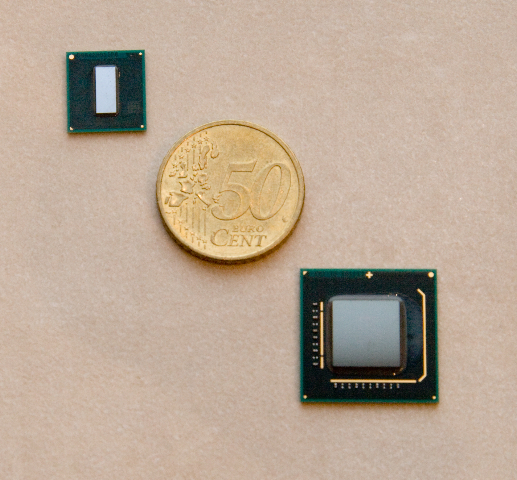Intel Releases Two New Atoms for NAS Devices
Intel getting NAS-ty!

While we still associate the Intel Atom with being the overwhelmingly popular netbook CPU, it's got more applications than just for tiny portables.
The Atom's being doing well inside networked storage appliances and Intel this week has added two new Atom processors to further boost the company’s offerings to its OEM partners Acer, Cisco, LaCie, LG Electronics, Netgear, QNAP, Super Micro, Synology and Thecus.
For consumer electronics, Intel is introducing the 1.8GHz Atom processor D425 single-core and D525 dual-core with support for DDR3 SODIMM.
The new Intel Atom processors (D425 and D525) are paired with the Intel 82801 IR I/O Controller and support Microsoft Windows Home Server and open source Linux operating systems.
“Networked storage appliances based on the Intel Atom processor platform enable consumers and businesses to organize, manage, protect and share documents, photos, videos and music throughout the home or office,” said Dinesh Rao, product line manager, Intel Storage Group. “The versatile Atom processor, which is at the heart of a growing variety of small, innovative, Internet-connected devices, makes it possible for storage vendors to develop low-power appliances that can innocuously sit on a desk or shelf while keeping digital content safe and available anytime, anywhere.”
Get Tom's Hardware's best news and in-depth reviews, straight to your inbox.
-
WyomingKnott D425 and D525 are boring names. Call them "Hydrogen" and "Helium," as in "I just bought a netbook with a helium atom in it."Reply -
mavroxur WyomingKnottD425 and D525 are boring names. Call them "Hydrogen" and "Helium," as in "I just bought a netbook with a helium atom in it."Reply
I have to agree. It would be cool to see them adopt element names to denote different models.
"Plutonium Inside"
:-) -
r0x0r Atoms running a full OS are slow as hell, but I wonder how these would run android (hint hint put it in a phone).Reply
-
nevertell r0x0rAtoms running a full OS are slow as hell, but I wonder how these would run android (hint hint put it in a phone).Why android ? It runs good in a netbook oriented linux distro.Reply
-
burnley14 r0x0rAtoms running a full OS are slow as hell, but I wonder how these would run android (hint hint put it in a phone).Reply
There were rumors a while back about Intel designing chips for devices like phones and such. It was a modified atom-like chip with a super low TDP that would make cell phones and such much more powerful. -
ctbaars r0x0rAtoms running a full OS are slow as hell, but I wonder how these would run android (hint hint put it in a phone).I don't understand what you're trying to say ...Reply -
ubergeek I've been using an atom board for my home NAS for a long time already. D945GCLF2 with a raid controller.Reply
